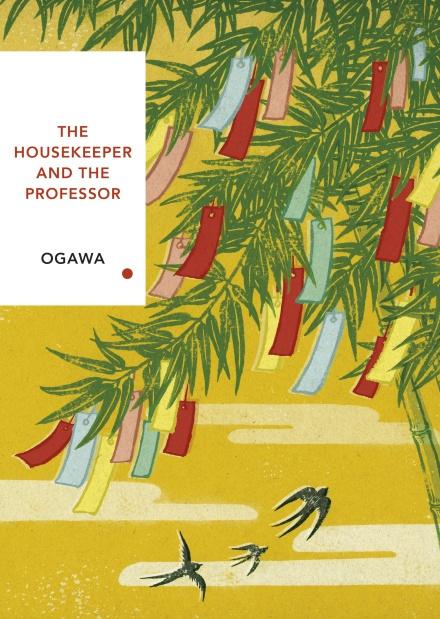
Further to my previous post on Penguin cover designs, Penguin have been producing some very beautifully designed, themed collections of books over the past few years., often under their ‘Vintage Classics’ imprint. They make for a gorgeous and very tempting display in a bookshop, and entice readers to pick up something they might not otherwise consider. For me, a lovely book acts as a moth to a flame, and in my post-lockdown state of cultural starvation, I was drawn helplessly to a Waterstones display of Japanese Vintage Classics once the bookshops reopened. Ever keen to read books from outside of the Western canon, I was intrigued by all of the choices, but decided to go with The Housekeeper and the Professor, due to its fascinating central concept of a woman trying to build a meaningful connection with a man whose memory only lasts for eighty minutes. I’m so glad I did, because it truly is a beautiful, poignant and incredibly affecting read; I gulped it all down in one go and had a wonderfully cathartic cry at the end.
The novel is narrated by the Housekeeper, whose name we never find out. A young single mother, she works hard cleaning people’s houses, and takes pride in doing a good job. Her employer, knowing she is exceptionally reliable, sends her one day to a new job, for a notoriously difficult client. A former maths professor who received traumatic brain injuries in a car accident some thirty years before, he can only remember anything in the present for eighty minutes at a time, though he can remember everything that happened to him up to the moment of his accident. He lives in a tumbledown cottage in the grounds of his sister in law’s house, and spends his days puzzling over maths challenges published in various journals. Every day the Housekeeper will have to reintroduce herself, and she will have to learn to adapt to the professor’s idiosyncratic and temperamental ways. No housekeepers have yet been able to last more than a week or so, but as soon as the narrator arrives, she sees that she will be able to stay the course. Polite, mild-mannered, and in love with the beauty of numbers, the Professor has retreated into the world of mathematics as a protection from his otherwise bewildering existence. His clothes are covered in safety-pinned notes, reminding him of things he would otherwise forget, the most poignant being ‘my memory only lasts for eighty minutes’. The Housekeeper initially focuses on making the cottage more comfortable for the Professor, and making sure he eats properly, but when she mentions her son one day, the Professor is outraged that he is at home alone after school, and insists he comes to join her until she has finished work. The Professor nicknames the little boy Root, as he says his head is shaped like the square root symbol, and reveals a tender affection for children in his loving treatment of the child. He helps him with his homework, sets him puzzles to do, and they share a love of baseball. Root encourages him to get his radio fixed, so they can listen to baseball games together, and the Professor flourishes in the young boy’s company. Even though every day their relationship must start anew, the love and care shown to him by the Housekeeper and Root gives the Professor a joy in the everyday that he had lost.
Together, the Housekeeper and Root try to give the Professor new experiences, such as eating in a restaurant and going to a baseball game, and find ever ingenious ways to get around his lack of memory, and lack of awareness that the world around him has changed. Gradually, they become a family unit, and Root grows up quickly with his new responsibility for ensuring the Professor is never distressed by any information that might reveal to him all he has missed in the thirty years since his memory was taken from him. Love and affection allow the Professor to blossom and enjoy the limitations of his life, and the Professor’s humility, gentleness and gift for teaching how numbers help to explain the miracles of the world around us, inspires both the Housekeeper and Root to see the value in their lives in a whole new way. This lovely story of the power of love to form connections across all sorts of divides is so enchanting, and is also the first book to make me think that actually, maths is beautiful, and I wish I’d had someone teach it to me like the Professor teaches it to Root! I really can’t recommend this enough, and the translation is excellent; Stephen Snyder has done a wonderful job. If, like me, you are in need of something to pick you up and make you feel more positive about the world at the moment, then The Housekeeper and the Professor is a perfect remedy.
